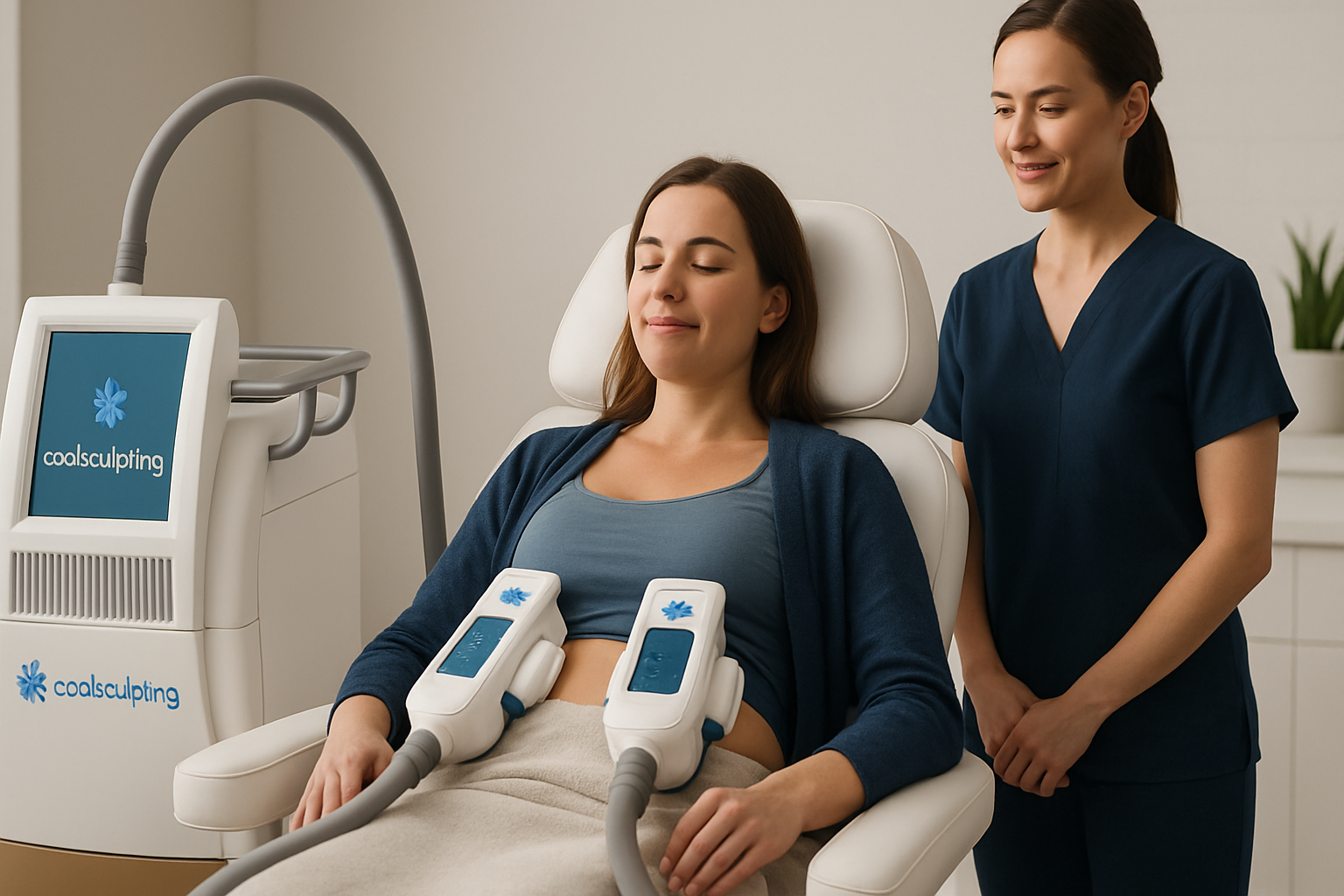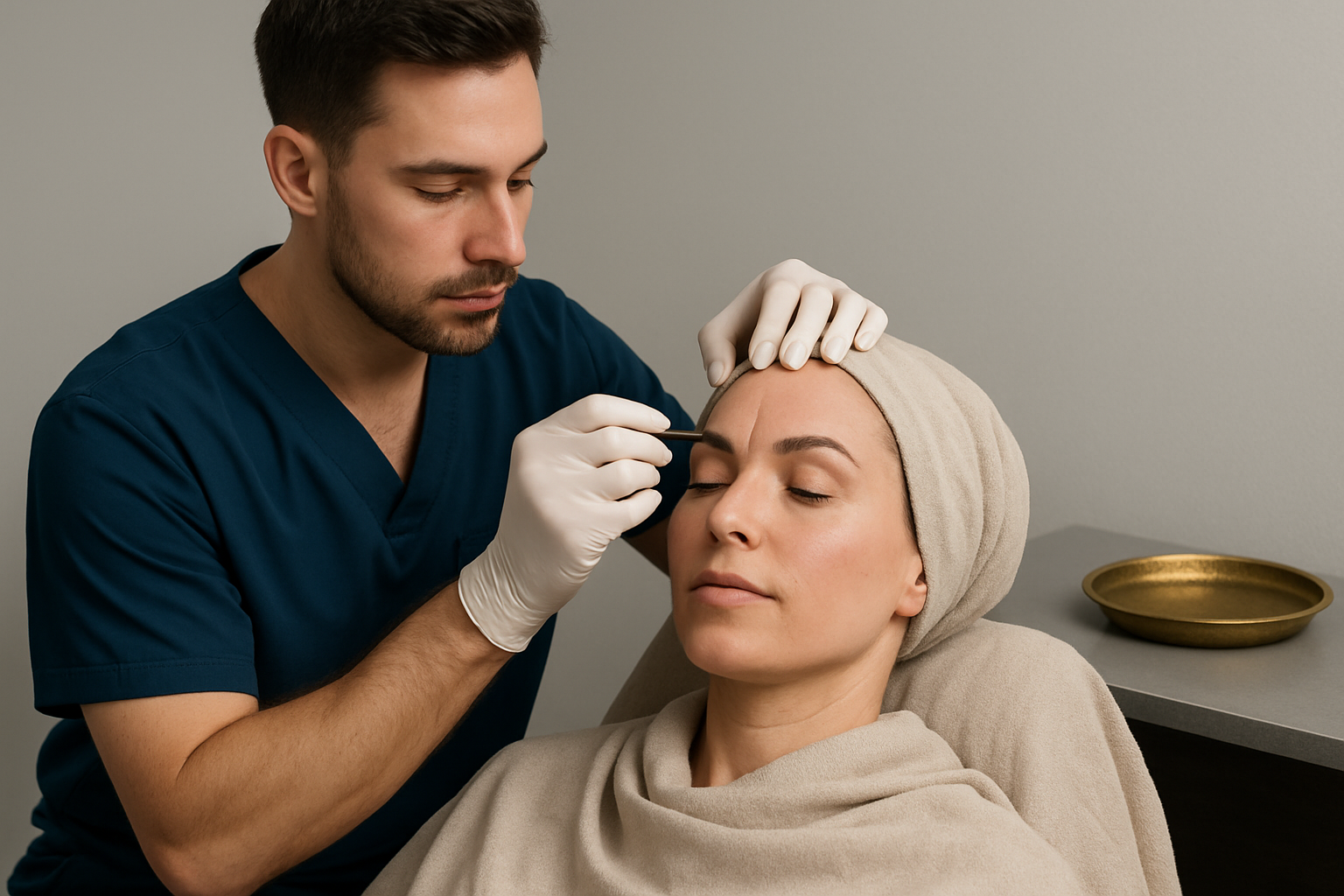You’ve seen it everywhere: “skin barrier repair” serums promising a miracle fix for redness, dryness, and irritation. But is the science of skin barrier repair really as simple as slapping on the latest drugstore cream? Not quite. Understanding how the skin barrier functions—and why clinic treatments outperform mass-market products—can be your ticket to healthy, resilient, glowing skin. Let’s dive into the real science behind barrier repair and reveal why the clinic advantage matters more than ever.
Jump to:
TLDR – Quick Guide
- Skin barrier: Your body’s first line of defense, made up of lipids, proteins, and cells.
- Why it matters: A compromised barrier = redness, flaking, sensitivity, and accelerated aging.
- Clinic treatments: Use advanced delivery systems and potent actives to target the root cause.
- Drugstore solutions: Mostly moisturize, but rarely fix underlying dysfunction.
- Best results: Come from expert assessment, custom protocols, and high-efficacy formulations.
Detailed Breakdown
The Science of the Skin Barrier
Your skin barrier—also known as the stratum corneum—is a microscopic fortress made of corneocytes (skin cells) “mortar-and-brick” style, held together by a mixture of ceramides, fatty acids, and cholesterol. This barrier locks in moisture, keeps out irritants, and is essential for a youthful, healthy complexion.
What goes wrong?
- Over-washing, harsh exfoliation, weather, and pollution can strip away barrier lipids.
- Genetics, eczema, and certain medications also weaken the barrier.
- When the barrier breaks down, skin becomes dry, red, itchy, and more prone to breakouts and infections.
Drugstore Solutions: What They Really Do
Mass-market moisturizers and serums promise “barrier repair,” but most only mask symptoms.
- Humectants (like glycerin) draw in water, offering a temporary plump.
- Emollients (like mineral oil) smooth the surface, but don’t always replenish critical barrier lipids.
- Occlusives (like petrolatum) lock in moisture but can trap irritants underneath.
The real catch?
Drugstore products often contain generic blends at low concentrations, rarely addressing the root cause of barrier dysfunction. For moderate to severe barrier damage, they’re simply not enough.
The Clinic Treatment Advantage
1. Advanced Ingredients, Higher Potency
Professional treatments go beyond drugstore basics:
- Prescription-grade ceramides, peptides, and growth factors: Penetrate deeper to repair cell structure.
- Customized acid blends: Remove only damaged cells, promoting healthy turnover without stripping.
- Anti-inflammatory actives: Soothe and reset skin for even the most sensitive clients.
2. Precision Delivery Systems
Clinic products use technologies like liposomes, nanoemulsions, and encapsulation, ensuring actives reach the right layer of skin for optimal results. No more wasted ingredients sitting on the surface.
3. Expert Guidance
Licensed professionals analyze your skin, identify what’s truly damaged, and tailor treatments—from medical-grade facials to LED therapy and microneedling—that address your unique needs.
4. Medical Devices and In-Clinic Therapies
Think beyond creams:
- Fractional lasers and microneedling stimulate natural repair and collagen synthesis.
- LED light therapy reduces inflammation and accelerates recovery.
- Prescription-only topicals deliver transformative results in weeks, not months.
Why Clinic Treatments Work When Drugstore Creams Don’t
- Concentration and quality: Clinic products and treatments use clinical-strength ingredients proven in peer-reviewed studies.
- Depth of action: Professional protocols reach the viable layers of skin, not just the surface.
- Comprehensive care: Clinic experts address lifestyle, nutrition, and environmental triggers for lasting repair.
Case in point:
A 2023 clinical study showed medical-grade barrier treatments improved hydration and reduced inflammation by 2–3x more than over-the-counter moisturizers over eight weeks.
Key Takeaways
- Science of skin barrier repair is about restoring function, not just adding moisture.
- Clinic treatments deliver superior results through potent ingredients, expert protocols, and advanced delivery.
- Drugstore products may offer relief for mild cases, but real repair happens under clinical care.
- Investing in professional guidance saves time, money, and your skin’s future.
FAQs
1. What exactly is the skin barrier, and why is it important?
The skin barrier is the outermost layer of your skin that locks in moisture and protects against irritants, bacteria, and pollutants. Keeping it healthy is vital for smooth, calm, and resilient skin.
2. Can drugstore creams ever fully repair a damaged barrier?
While drugstore creams can temporarily relieve dryness, they rarely contain the right mix or concentration of lipids needed for true repair, especially in moderate to severe cases.
3. What clinic treatments are best for skin barrier repair?
Medical-grade facials, customized serums, microneedling, and prescription creams are all highly effective. The best choice depends on your skin’s specific needs, determined by a professional assessment.
4. Are clinic treatments safe for sensitive skin?
Absolutely—professional providers tailor every treatment to your sensitivity level, often using calming ingredients and protocols that promote healing without irritation.
5. How can I tell if my skin barrier is damaged?
Signs include persistent dryness, redness, flaking, stinging, or increased breakouts. If symptoms don’t resolve with basic moisturizers, it’s time to see a skin expert.




